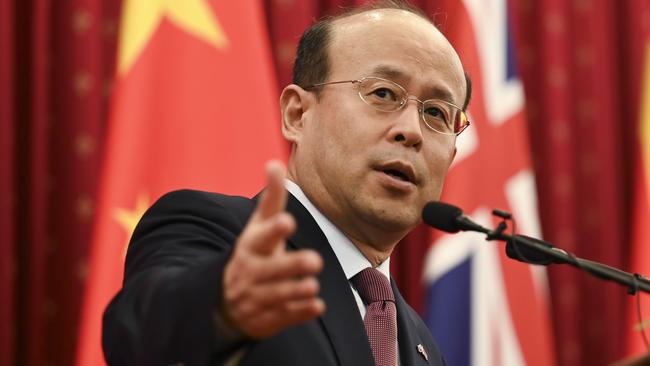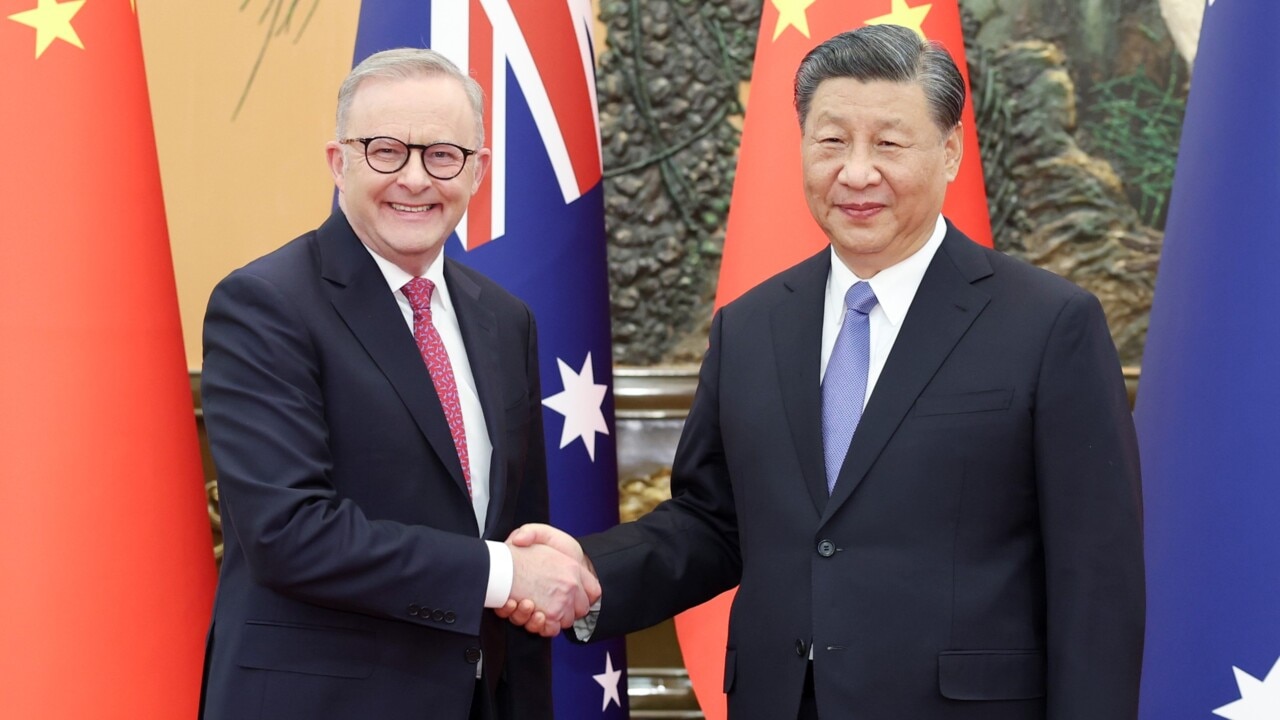Experts slam Chinese sonar claims
Defence experts have rubbished the claim from Beijing’s envoy in Canberra that China was not responsible for the sonar pulse that harmed Australian divers last November.

Defence experts have rubbished the claim from Beijing’s envoy in Canberra that China was not responsible for the sonar pulse that harmed Australian divers last November, as the Coalition called on Labor to rule out joint military exercises with the communist nation.
Lead author of Australia’s defence strategic review Peter Dean said that Chinese ambassador Xiao Qian’s comments, which insinuated Japan was involved in the incident, were “typical” of the misinformation that was coming out of Beijing.
“When it comes to building better relationships bilaterally ... this is literally the worst thing you could come out with in the new year,” he said.
“It’s not at all believable and of course not only is it seen as such by Australia, but it’s an affront to the Japanese as well, one of our closest partners in the region.”
Professor Dean said the tactics were “intimidatory” and that the Australian government “should be calling out this incident for what it is.”
“What’s boggling is I can’t see what the ambassador’s attempting to achieve,” he said.
Holding a two-hour press conference in Canberra on Wednesday, Mr Xiao tried to shift blame for the sonar pulse incident last November to China’s historic enemy, Japan, and claimed the Australian divers would have been killed if China’s sonar technology had been deployed.
Anthony Albanese on Thursday said he was “not swayed” by the comments from Mr Xiao.
“The navy made reports,” the Prime Minister said. “I think it’s very clear what occurred. I stand by the comments that I made at the time, that it was wrong. It shouldn’t have occurred.”
Strategic Analysis Australia founder and director Michael Shoebridge said China was “peddling nonsense” in its insinuation Japan was somehow responsible for injuring Australian divers with the sonar pulse.
“The fascinating thing is this is the Chinese state contradicting itself. At the time of the incident, the Global Times said, well, Australia got too close to China by being in Japan’s waters and so the Chinese warship used its sonar to detect their real intentions,” he said.
“So we’ve now got two different stories from the Chinese government. The ambassador’s only purpose is he’s got to follow orders from Beijing and anything that can cloud the issue ... is good for them. So this is all just part of obscuring the unfortunate fact that the Chinese military is behaving increasingly aggressively towards the Australian military and to many militaries.”

Mr Shoebridge said it was clear China was trying to “drive wedges between partners and allies”.
Opposition home affairs spokesman James Paterson said it was “ridiculous in the extreme to suggest that this was Japan” while Opposition defence spokesman Andrew Hastie rejected Mr Xiao’s suggestion that China and Australia consider conducting joint military exercises.
Mr Hastie said the government should “rule this out.”
“Such exercises with the PRC are not in our national interest, nor will they serve our alliances well,” Mr Hastie said.
Senator Paterson also said he was “deeply sceptical that closer military relations or joint exercises with the Chinese Communist Party is possible in the current strategic environment, given their posture in the world.”
“I mean, if they’re not even willing to admit that their own vessels deliberately engaged in conduct which caused harm to Australian navy divers, then how on earth could we safely conduct a military exercise with them?”
Mr Shoebridge also said there was nothing unusual about the statement from Australia’s Department of Foreign Affairs and Trade congratulating the new Taiwanese government following the weekend’s elections.
“It’s very normal for an Australian government to welcome a democratic election and its outcome in another country and in another jurisdiction,” he said.



To join the conversation, please log in. Don't have an account? Register
Join the conversation, you are commenting as Logout